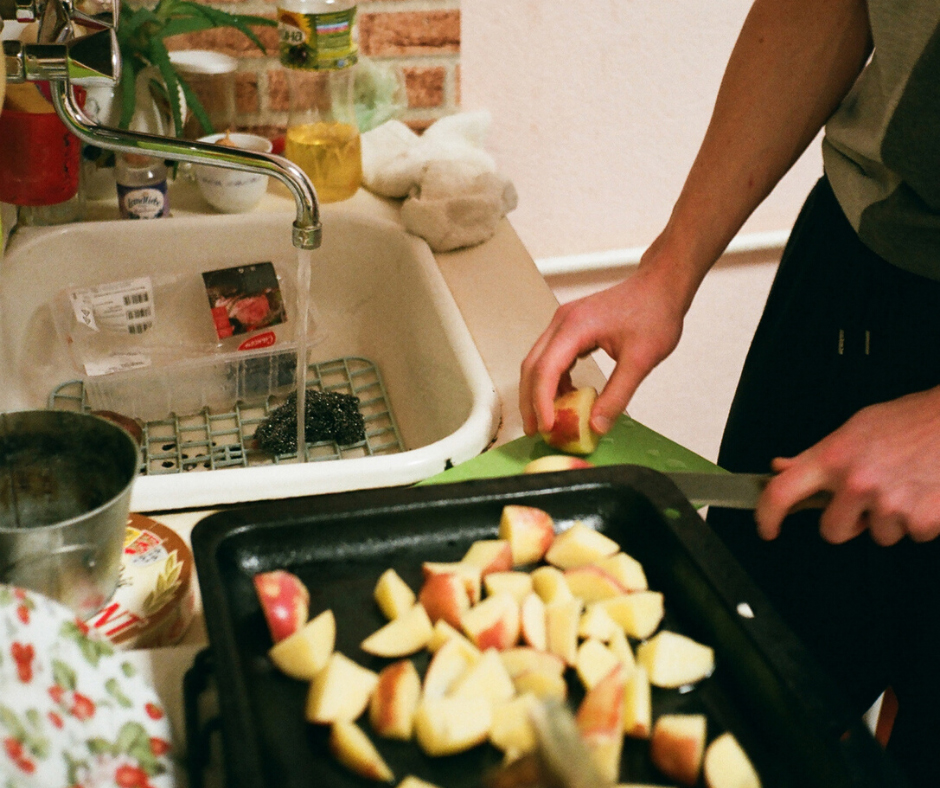
5 Tips for Balancing Health & Nutrition During COVID-19
When your life is quickly tossed into turmoil, it can be easy to give in to the stress surrounding you instead of protecting your health. Balancing your nutrition and keeping your overall health a priority during chaos doesn't have to be overwhelming - we've compiled some simple tips you can follow to safeguard your nutrition and health below.
- Let's talk about water. Ensuring you are well hydrated is an essential part of staying healthy. Drinking plenty of water reduces the risk of developing other health-related complications and can help our bodies feel better overall. So how much water should we drink each day? According to Registered Dietitian, Barbara Gordon, RDN, LD, it varies for men and women. Gordon recommends that women drink nine cups of water per day and men about 12.5 cups. You can find out more here.
- Which foods should I buy at the grocery store? When trips to the grocery store have been limited, it's essential to stock up on
nutrient-rich foods that won't expire quickly. First, be prepared and make a grocery
list of these nutrient-packed items and stick to it - try to stay away from the tempting
foods with empty calories. Which items should be on our grocery list? Nutrition experts recommend the following foods to get the most nutrition and bank for your buck:
- Bread
- Instant oatmeal
- Dried pasta
- Frozen brown rice/couscous
- Fruits - sturdy fresh fruit (apples, citrus), dried, plain frozen, canned in juice or water
- Vegetables - sturdy fresh veggies (celery, broccoli, onions, potatoes), plain frozen, low sodium canned, sun-dried
- Sauces - tomato pasta sauce, salsa
- Soups and broths
- 100% juice
- Cheeses - low-fat cheddar, mozzarella, swiss, feta
- Beans/legumes
- Nuts and seeds - bagged, canned, nut butters
- Chicken - frozen or canned
- Beef - pre-made frozen lean ground patties or meatballs
Oh, and if you're wondering if canned goods can still be nutritious, take a look here.
Nutritional Sciences Assistant Professor Allison Childress, Ph.D., RDN, CSSD, LD has some excellent recommendations for getting your family involved in cooking. "Get creative with these foods that you might not normally buy! If you are at home with family take turns cooking meals. One person can choose three to five ingredients and then challenge another person to make a meal out of it. For example: beans, canned tomatoes, Feta and olive oil. You can make a Greek salad, a Mediterranean taco stack or you could mash the beans and mix with the other ingredients to make a vegetarian burger!" - Food safety tips. The first step in at-home food safety is washing your hands. Before you handle or prepare food, washing your hands with soap and water for 20 seconds will help ensure germs are not spread. Don't forget to sanitize surfaces, countertops, cutting boards, dishes, and cooking utensils after each use to reduce the risk of spreading bacteria. What about cleaning and rinsing food? The Academy of Nutrition and Dietetics recommends rinsing produce under running water but avoiding rinsing seafood, meat, poultry or eggs to prevent bacteria from spreading.
- Keeping our families healthy. Eating at least one meal together as a family can be a great way to decompress and create a supportive environment. Family meals are a time for everyone to unplug, walk away from the stresses of the day and share with each other how they're feeling. Family meals don't just have to be eaten at the dinner table. Have some fun, be creative - try putting a blanket on the floor and having an indoor picnic, take a card table outside and enjoy the air.
- Think positive. Being out of your normal routine, staying inside, working from home, teaching your
kids at home can all put distress on your mental health. Maintaining a positive mindset in the midst of the pandemic will be crucial to staying
healthy. Below are some simple steps you can follow to boost your positivity level:
- If you're able, go outside. Take a walk, sit in the sun and read a book, or just wave to your neighbor down the street.
- Take a break. Close the laptop, put away the phone or tablet and cuddle with your kids, listen to your favorite song, or take a bubble bath.
- Be social - virtually. Take time to video chat with friends and family, make a phone call and send messages of support.
- Exercise. Long walks in the evening, a quick run first thing in the morning or streaming a free online workout are great ways to get those positive endorphins flowing.
